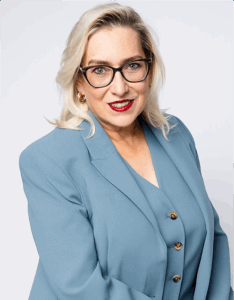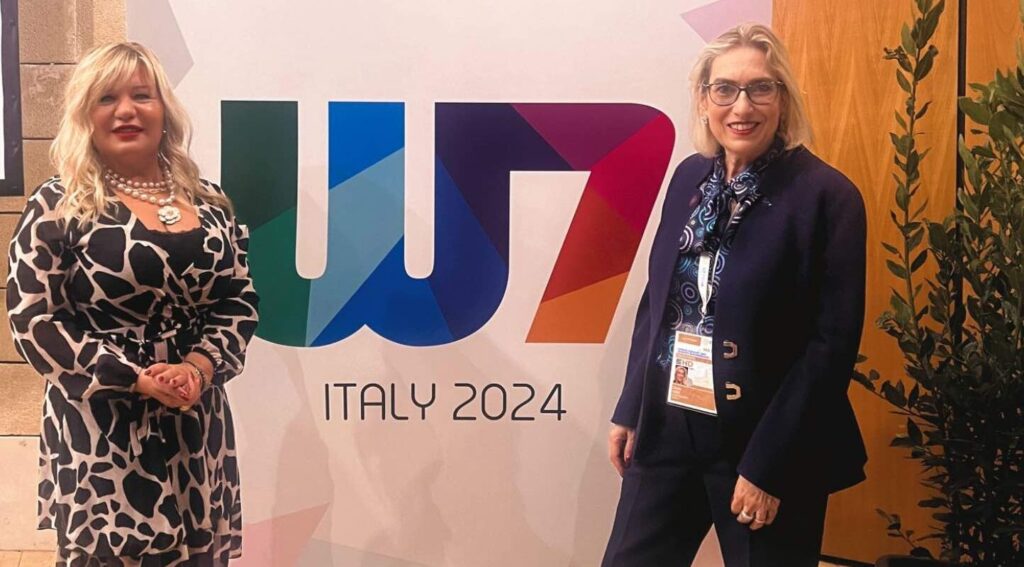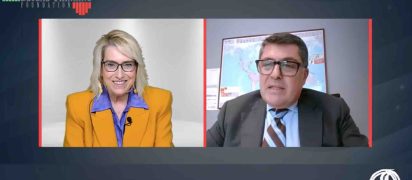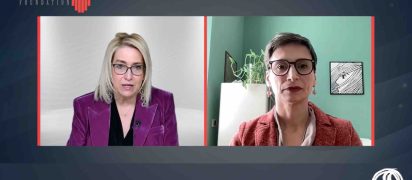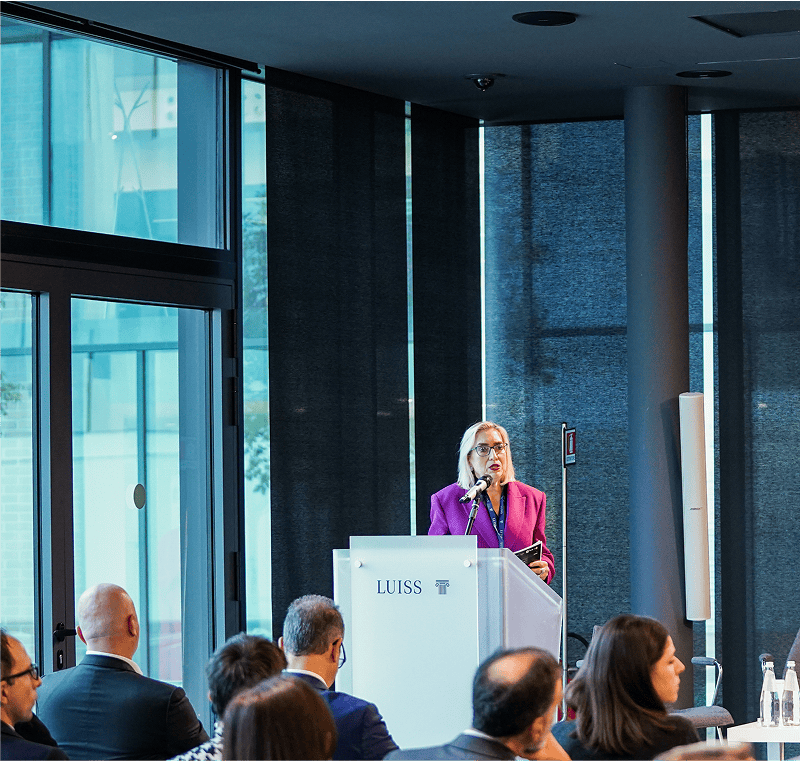





MATERA – Si è tenuto nelle giornate del 4, 5 e 6 ottobre, nella suggestiva cornice della città di Matera, il G7 delle Pari Opportunità, un evento di grande rilevanza internazionale che ha visto riuniti i rappresentanti delle principali potenze mondiali per discutere e definire le strategie future per la promozione dell’inclusione, dell’uguaglianza di genere e dei diritti delle minoranze. Matera è stata il fulcro di un confronto globale su temi di stringente attualità, con l’obiettivo di creare politiche comuni che favoriscano un reale progresso nel campo delle pari opportunità.
Matera, già riconosciuta come Patrimonio dell’Umanità dall’UNESCO e Capitale Europea della Cultura 2019, ha fornito lo scenario ideale per ospitare questo incontro, grazie al suo patrimonio storico e culturale, che ha saputo unire simbolicamente passato e futuro in una visione inclusiva di società globale. Durante i tre giorni, le delegazioni di Italia, Canada, Francia, Germania, Giappone, Regno Unito e Stati Uniti hanno lavorato insieme per delineare un programma concreto in grado di rispondere alle sfide più urgenti in materia di diritti umani, parità di genere e inclusione sociale.
I temi principali affrontati:
Parità di Genere e Rappresentanza Femminile – Uno dei principali temi all’ordine del giorno è stato il rafforzamento della presenza delle donne nei settori chiave, dalla politica all’economia, passando per la scienza e la tecnologia. Le delegazioni hanno discusso l’importanza di introdurre misure strutturali per superare il gender gap, con particolare attenzione al sostegno alle lavoratrici madri e alla riduzione delle disparità salariali.
Violenza di Genere e Protezione dei Diritti Umani – Grande enfasi è stata posta sulla necessità di contrastare la violenza di genere in tutte le sue forme. Tra le proposte emerse, un piano coordinato tra i Paesi G7 per rafforzare la cooperazione nella lotta contro la violenza domestica, la tratta di esseri umani e i matrimoni forzati. Le delegazioni hanno concordato sulla necessità di garantire una protezione efficace per le donne e le ragazze, con particolare attenzione ai contesti più vulnerabili.
Inclusione delle Minoranze e Persone con Disabilità – Si è discusso anche di come le politiche di pari opportunità debbano essere estese non solo a livello di genere, ma a tutte le minoranze. Tra le priorità delineate, l’inclusione delle persone con disabilità e delle comunità LGBTQ+, per le quali si è proposto un impegno collettivo nel promuovere leggi che garantiscano piena dignità e diritti.
Impatto della Transizione Verde e Digitale sulle Pari Opportunità – Un tema innovativo, emerso con forza durante il G7, è stato il legame tra la transizione ecologica e digitale e le pari opportunità. È stata evidenziata la necessità di garantire che la rivoluzione tecnologica e la transizione energetica non escludano le donne e le minoranze, ma anzi diventino motori di inclusione, attraverso programmi educativi e politiche di incentivazione per garantire la loro partecipazione attiva nei settori emergenti.
I risultati raggiunti e il bilancio finale:
Il G7 si è concluso con un bilancio estremamente positivo, segnato da una forte coesione tra i Paesi partecipanti e da un impegno concreto verso l’adozione di misure comuni. Al termine della tre giorni, è stato firmato il “Patto di Matera”, un documento che segna l’inizio di un piano d’azione congiunto per l’incremento delle pari opportunità a livello globale. Tra le misure più rilevanti, si annovera l’istituzione di un fondo internazionale per il supporto alle donne imprenditrici nei Paesi in via di sviluppo e l’impegno a raddoppiare gli investimenti per programmi educativi che promuovano la leadership femminile nei settori STEM (Scienza, Tecnologia, Ingegneria e Matematica).
L’Italia, in qualità di paese ospitante, ha giocato un ruolo di primo piano, con il Ministro per le Pari Opportunità che ha ribadito l’importanza di trasformare le proposte discusse in politiche attuabili a livello nazionale e internazionale. “Questo G7 ha rappresentato un passo cruciale verso un mondo più equo e inclusivo. I temi trattati sono fondamentali per garantire un futuro in cui ogni individuo, indipendentemente dal genere, dall’orientamento sessuale o dalle condizioni sociali, possa avere le stesse opportunità,” ha dichiarato il Ministro nel discorso conclusivo.
Con la chiusura di questo G7, Matera non solo ha confermato il suo ruolo di città simbolo di cultura e dialogo, ma ha anche ospitato un momento di grande cambiamento che avrà un impatto significativo sul futuro delle politiche di inclusione. La speranza condivisa è che le decisioni prese in questi giorni possano presto tradursi in risultati tangibili per milioni di persone in tutto il mondo.
Il W7 2024 di Matera rafforza l’impegno per l’uguaglianza di genere: formazione, lotta alla violenza economica e inclusione globale
Il 6 ottobre 2024, si è tenuto a Matera l’importante evento Women 7 2024 (W7) ‘G7 Gender Equality Ministers and Civil Society Dialogue’, presso l’Auditorium R. Gervasio in Piazza del Sedile. Questo evento, organizzato come piattaforma di dialogo aperto tra le delegazioni di governo e la società civile, è stato accessibile anche in streaming, permettendo una partecipazione globale. L’incontro ha offerto un’opportunità unica per esperti e attiviste di confrontarsi e condividere le proprie esperienze, concentrandosi sui principali temi legati alla parità di genere discussi durante il G7 Italia 2024.
Women 7 è il gruppo ufficiale di impegno del G7 per l’uguaglianza di genere, composto da cento delegate provenienti dai Paesi membri del G7. Dalla sua creazione nel 2018, il W7 ha l’obiettivo di assicurare che le questioni di genere siano centrali nelle discussioni del G7, influenzando le politiche globali e i relativi impegni nella Dichiarazione finale dei leader del G7.
Con l’Italia alla guida del W7 dal 11 dicembre 2023, il dialogo di Matera ha toccato tematiche chiave come la giustizia climatica, la lotta contro la violenza sulle donne e le ragazze, il lavoro e l’empowerment femminile , nonché la pace e la lotta contro le discriminazioni. Questa giornata ha rafforzato il dialogo tra governi e società civile, promuovendo l’integrazione delle questioni di genere nei dibattiti politici globali e stimolando impegni concreti per il futuro.
L’evento si è concluso con una forte consapevolezza dell’importanza del ruolo delle donne nelle decisioni internazionali, riaffermando la necessità di politiche inclusive per garantire una maggiore equità di genere e giustizia sociale su scala globale.
Tra gli speaker dell’evento menzioniamo la presenza della Prof.ssa Laura Mazza, Segretario del Parlamento del Mediterraneo e Presidente di Federformazione, che nel suo intervento ha definito il ruolo strategico della formazione per l’empowerment femminile.
«Raggiungere la parità di genere, obiettivo comune per il goal 5 della Agenda 2030 delle Nazioni Unite – Onu e del Piano Nazionale di Ripresa e Resilienza, è stato ancora una volta il traguardo del Woman7 del G7. Ogni volta che una donna lotta per se stessa, lotta per tutte le Donne».
Claudia Segre, Presidente di Global Thinking Foundation, ha toccato il tema della lotta alla violenza economica e finanziaria. «La violenza economica è un fenomeno subdolo e spesso nascosto, che si manifesta nel controllo delle risorse finanziarie e nell’ostacolo all’autonomia economica delle vittime, in particolare delle donne. Occorre l’introduzione di legislazioni che definiscano e puniscano la violenza economica, come già avviene per altre forme di violenza di genere. Allo stesso tempo, è necessario prevedere tutele specifiche per le vittime, come l’accesso facilitato a consulenze legali e finanziarie gratuite».
La delegazione dei ministri del G7 e numerose referenti istituzionali internazionali hanno preso parte all’evento, tra cui:
– Eugenia Roccella, Minister for the Family, Birth Rate and Equal Opportunities
– Lella Golfo, (video), Martina Rogato, Claudia Segre, Anna Maria Tartaglia (Co-Chairs Women 7 and Honorable President W7)
– Helena Dalli, Commissioner for Equality, European Commission Dalli
– Marina Terragni, President GEAC 2024,
– Squicciarini Maria Grazia, UNESCO
– Alessandra Ricci, CEO SACE
– Martina Rogato, Women7
– Fabio Pompei, CEO Deloitte Italy, Greece and Malta con Barbara Pontecorvo, Partner and Head of Task Force Society Benefit Deloitte.

